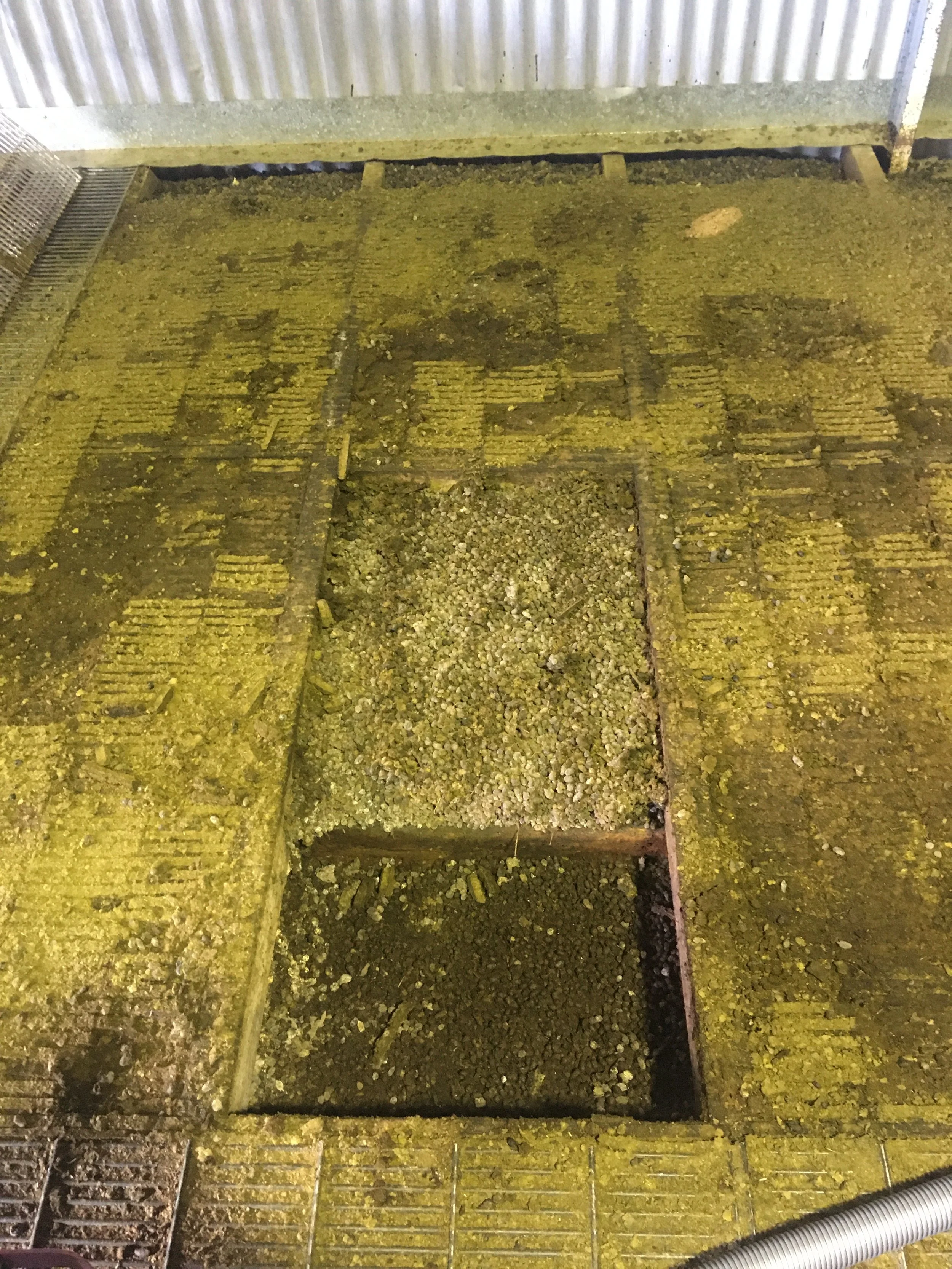The Great Wombat Sheep Poo Caper
If I had it to do over again, I would design the underpinnings of my holding shed differently, to make it much easier to extract the accumulation of sheep poo. Big modern sheds are built on pilings tall enough to allow front-end loaders to drive under and scoop out the poo.
Sadly, my holding shed was one of the first things I built, and it never dawned on me that someday the job of scraping out the poo would fall on my shoulders. For the first 15 years or so, my friend and shearer Muzza Johnson cleaned out the shed for me every couple of years, and sold the poo. Perfect solution—I didn’t charge him for the poo and he didn’t charge me for the labour.
Shorn sheep sheltering from the elements in the holding shed. The main reason for having a holding shed, though, is to keep woolly sheep dry for shearing.
Eventually, though, the dust from years of shoveling sheep poo from under many of the local sheds became too much for Muzza, and no long-term replacement emerged until last year.
The year before last, I found someone to clean out the shed, who did a great job, but to my dismay, within months the poo was building up rapidly in a couple of sections. When I contacted Kip to see if he would come back, he declined: “Not worth it.”
The space under the gratings is just too shallow to make the work of hauling up the metal grating, digging out the relatively small amounts of poo and then wrestling the gratings back into place and screwing them down worth the income from the bags of poo. Sigh.
While I sporadically remembered and worried over the wooden bearers rotting as the sheep poo got deeper, I couldn’t find anyone to do the job. And the sheep poo was building up way too fast in those two sections. Eventually, it started to emerge up through the gratings, at which point I finally got it: my resident wombat was piling up the poo according to a plan that only makes sense to him.
My under-shed wombat moved in sometime around 2018. While I’d seen his scat, I first saw (and photographed) him in 2019. He seemed quite pleased with his pre-fab burrow and wandered happily around it under the grating.
First sighting of the under-shed wombat in September 2019.
What set him off shovelling the poo into a couple of areas is a mystery, but I can report that everything you read about wombats being powerful diggers is absolutely true. It’s no wonder wombats are often called badgers. He compacted the sheep poo so firmly into those sections that it formed a solid crust at the gratings. Never mind the wooden bearers rotting, I was in danger of the metal gratings rusting away!
The fully-compacted wombat-assist section after removing the grating.
My initial dismay turned into a cunning plan—I would clean out the wombat-assist sections, then let him push more poo into them. Maybe I wouldn’t have to lift up every single grating, if I was willing to be patient and let him do his thing.
I still needed some way to get the poo out, though, and ended up buying a commercial wet/dry vacuum, which seemed like a cleverer idea than it turned out to be. Shallow as my under-grating space is, when it’s completely full of wombat-compressed poo it’s a lot of volume—many, many vacuum loads. And I still had to get them into the back of the ute.
My heavy-duty wet/dry vac on the ute’s lift gate.
Over the past few weeks, with my offsiders Alison, Doug and Brett, I have developed a reasonably efficient system for extracting the poo, using a combination of the vacuum and a tipping garden cart that we fill with a shovel, and then lift into the back of the ute with my hand-crank lift gate. Ali and Doug are using the poo to regenerate their under-nourished garden paddock.
The specially chosen garden cart, with just the right wheel base to fit on the lift-gate. While not as nifty a tool as the vac, it’s much more efficient in terms of shifting big volumes of poo.
Eight full ute loads of sheep poo came out of the two wombat sections, which comprise only about 20% of the shed’s total area. I’ve decided to leave the rest for now, and see whether my wombat is willing to repeat his caper. I certainly hope so!
A partial ute-load.
I recently came across the following Landline clip from 2013 that serendipitously coincided with the launch of the White Gum Wool website. (Well, actually, I threatened my then web dev guy with all sorts of mayhem if he didn’t have the website live before the Landline program aired. We made it with days to spare.) Many of you will remember the program, but it’ll be new for some of you. Stockman Davey Carnes is still going at 95—I spent the day with him yesterday, taking him to an eye surgery appointment.






